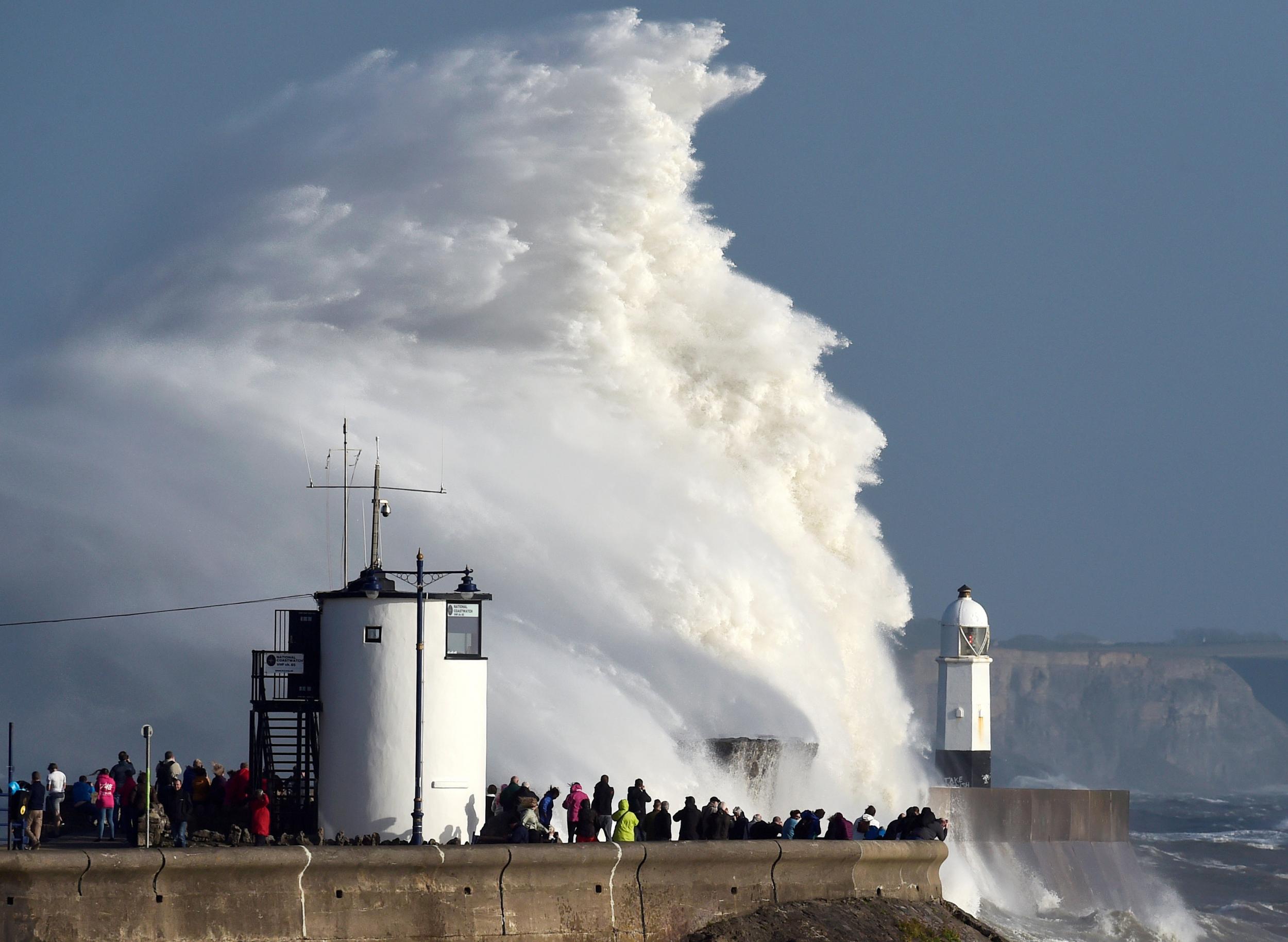Storm Ophelia: Deadly ex-hurricane leaves 245,000 without power in Ireland as it barrels across British Isles
Schools on both sides of Irish border closed for second day, internet and telephone services cut off and some areas hit by shortages to water supplies

Your support helps us to tell the story
From reproductive rights to climate change to Big Tech, The Independent is on the ground when the story is developing. Whether it's investigating the financials of Elon Musk's pro-Trump PAC or producing our latest documentary, 'The A Word', which shines a light on the American women fighting for reproductive rights, we know how important it is to parse out the facts from the messaging.
At such a critical moment in US history, we need reporters on the ground. Your donation allows us to keep sending journalists to speak to both sides of the story.
The Independent is trusted by Americans across the entire political spectrum. And unlike many other quality news outlets, we choose not to lock Americans out of our reporting and analysis with paywalls. We believe quality journalism should be available to everyone, paid for by those who can afford it.
Your support makes all the difference.Storm Ophelia has caused further disruption after three people died in hurricane-force winds and hundreds of thousands were left without power.
Ireland and Northern Ireland bore the brunt of the storm as it battered the British Isles, with around 245,000 homes and businesses still without power in the republic on Tuesday.
Scotland was braced for gusts of up to 70mph and flood warnings were in place on its west coast as the remnants of the hurricane hit the country and northern England.
Commuters were hit by delays caused by the weather, with several rail lines blocked by fallen trees and other problems.
Train services were temporarily hit between Glasgow and Edinburgh, and from the capital to Aberdeen, Dundee and Perth, as trees were blown on to tracks.
In Glasgow part of a derelict block of flats already earmarked for partial demolition collapsed at around 4am, and a scout hall roof was blown off in Dumfries and Galloway as the region took the brunt of winds up to 77mph.
In Cumbria the county council said that high winds had torn the roof from a house in Whitehaven and even torn traffic lights from their poles, as well as causing traffic disruption.
Part of the roof of a stand at National League team Barrow AFC was also ripped off by the wind.
Ireland experienced the worst of the weather on Monday, with winds of almost 100mph damaging electricity networks and causing widespread disruption.
Help from Northern Ireland and the rest of the UK is expected to be drafted in on Wednesday to help restore power, ESB, the Republic of Ireland's electricity network, said.
Schools on both sides of the Irish border remained closed for a second day as authorities began to assess the damage.
Thousands of people remained without internet and telephone services after lines were downed.
Some areas were also hit by shortages to water supplies.
Fintan Goss, 33, died in Ravensdale, Dundalk, when a car he was in was hit by a tree at about 2.45pm, gardai said.
Mr Goss, who had become a father for the second time just weeks ago, was returning home from work and was just 10 minutes from home when the accident happened, Louth county councillor John McGahon said.
In Cahir, Co Tipperary, a 31-year-old named locally as Michael Pyke was killed in a chainsaw accident when he was trying to clear a tree downed by the wind.
His death came after a woman driver in her 50s was killed when a tree fell on her car in strong winds near Aglish village in Co Waterford.
The Irish Independent named her as former oncology nurse Clare O'Neill, who was due to celebrate her 59th birthday on Tuesday.
Ireland's national emergency co-ordination group was meeting in Dublin on Tuesday to assess the extent of the damage.
Prime Minister Theresa May spoke to her Irish counterpart Leo Varadkar on Monday afternoon to offer support.
The UK Met Office has reduced the area covered by a yellow weather warning, but has still said a spell of "very windy weather is likely".
The warning now covers south-west Scotland, parts of north-east England and Yorkshire.
Its forecast added: "Some damage to buildings, such as tiles blown from roofs, could happen."
Press Association
Join our commenting forum
Join thought-provoking conversations, follow other Independent readers and see their replies
Comments